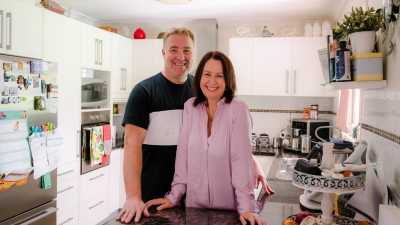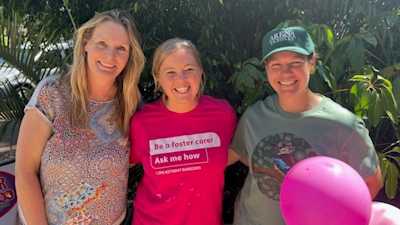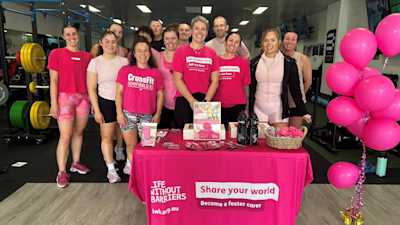12 years ago, Kate and Matt began their foster care journey. Today they share their story and their advice for new Carers.

Everyone has their own unique story to tell - today meet Kate and Matt, a couple from Tasmania who have been Foster Carers for 12 years.
“We originally thought we could only have two children of our own. We knew we had the capacity to love and care for more children than this, so we started investigating foster care." Said Kate.
“We were then blessed with two more of our own children unexpectedly. Although it seemed our house was full, we knew that foster care was still something we were both passionate about.
“We completed the training and the process of registering as Carers, and started our journey by providing respite care on weekends and during holiday periods,” Kate said.
Since then, Kate and Matt have cared for twenty children, including two long-term placements. They currently have one child in their care.
The biggest challenge, says Kate, is time.
“My husband and I work full-time so the biggest challenge is squeezing in the many appointments children need to attend. The rise of the Zoom call has helped this a lot. Many of the professionals are happy to video conference with me if talking to the child is not necessary. We have also arranged for a number of the appointments to happen at school for our child which is handy,” explains Kate.
“The best thing about being a Foster Carer is seeing the child improve in an area they have previously struggled. That, and the moments when it hits you that you love this child as much as your own.”
She does have some words of caution for people considering Foster Care.
“Make sure you are not going into foster care to fill a hole in your own life. Caring can be a rollercoaster of emotions and will likely shine a spotlight on any of your personal weaknesses.
“Children and young people in care have been placed in this environment because they have suffered. They should not be given an additional burden of being any type of therapy for you.
"The other piece of advice would be to read up as much as you can on trauma. Once we understood trauma-informed practice, our caring journey became much easier - it isn't as simple as just providing boundaries and routines,” says Kate.
Nevertheless, Kate says that Foster Carers are “critical”.
“So many of Tasmania's children need support in this way. We call ourselves their ‘growing up parents’. Their own parents still love them and want to maintain a relationship with them, but for whatever reason, are not able to help them to grow up. That’s our job,” says Kate.
For people who do decide to become ‘growing up parents’, she says one key thing to remember is to practice good self-care.
“We try hard to get away for a weekend or go on date nights regularly to ensure that we are OK as individuals and as a couple. If we fall down, so does everything else,” says Kate.
For more information about foster care and to learn how you can help change the life of a child in need, call 1300 592 227 or visit our Foster Care webpage.


